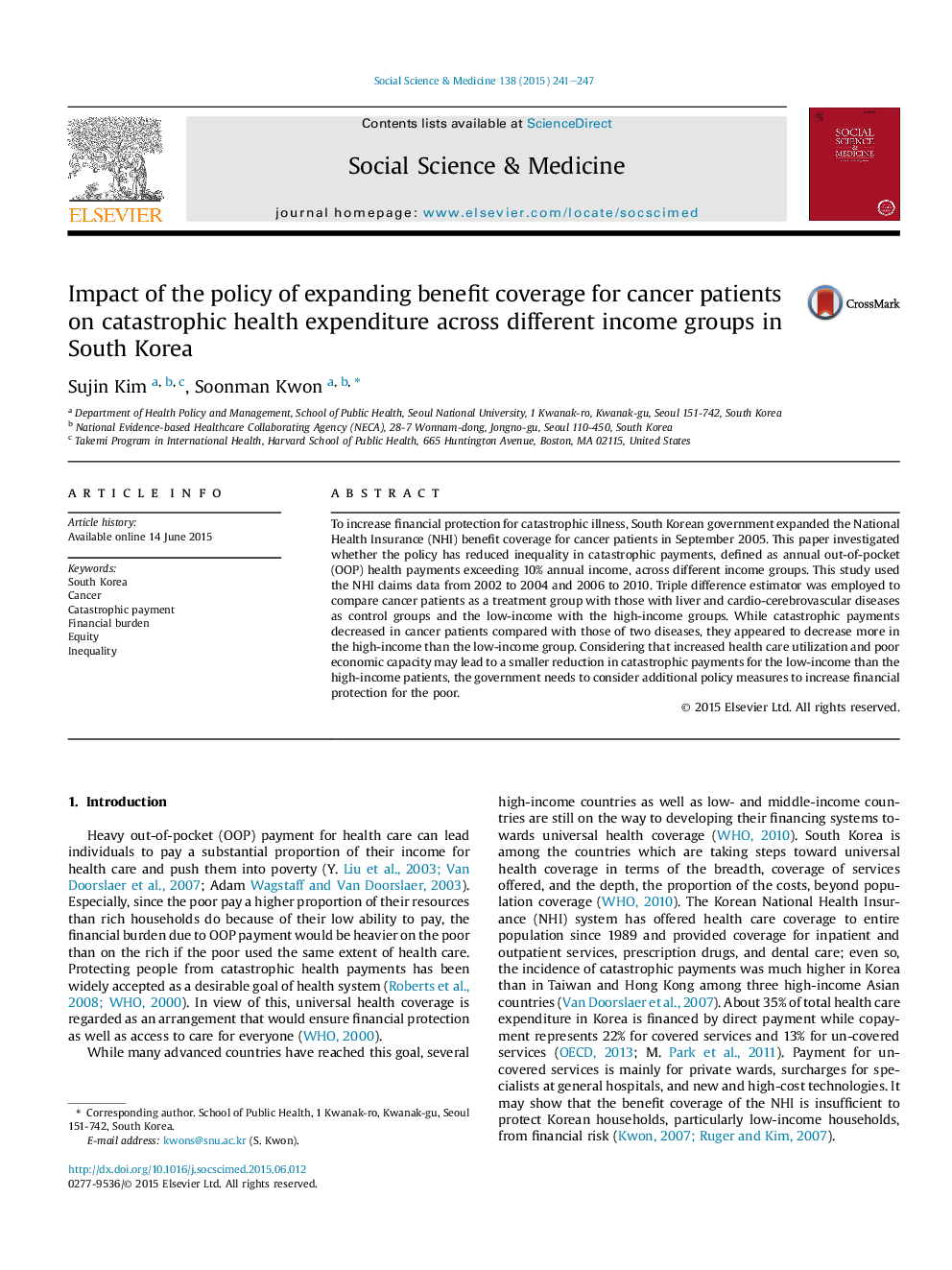| Article ID | Journal | Published Year | Pages | File Type |
|---|---|---|---|---|
| 7332289 | Social Science & Medicine | 2015 | 7 Pages |
Abstract
To increase financial protection for catastrophic illness, South Korean government expanded the National Health Insurance (NHI) benefit coverage for cancer patients in September 2005. This paper investigated whether the policy has reduced inequality in catastrophic payments, defined as annual out-of-pocket (OOP) health payments exceeding 10% annual income, across different income groups. This study used the NHI claims data from 2002 to 2004 and 2006 to 2010. Triple difference estimator was employed to compare cancer patients as a treatment group with those with liver and cardio-cerebrovascular diseases as control groups and the low-income with the high-income groups. While catastrophic payments decreased in cancer patients compared with those of two diseases, they appeared to decrease more in the high-income than the low-income group. Considering that increased health care utilization and poor economic capacity may lead to a smaller reduction in catastrophic payments for the low-income than the high-income patients, the government needs to consider additional policy measures to increase financial protection for the poor.
Related Topics
Health Sciences
Medicine and Dentistry
Public Health and Health Policy
Authors
Sujin Kim, Soonman Kwon,
